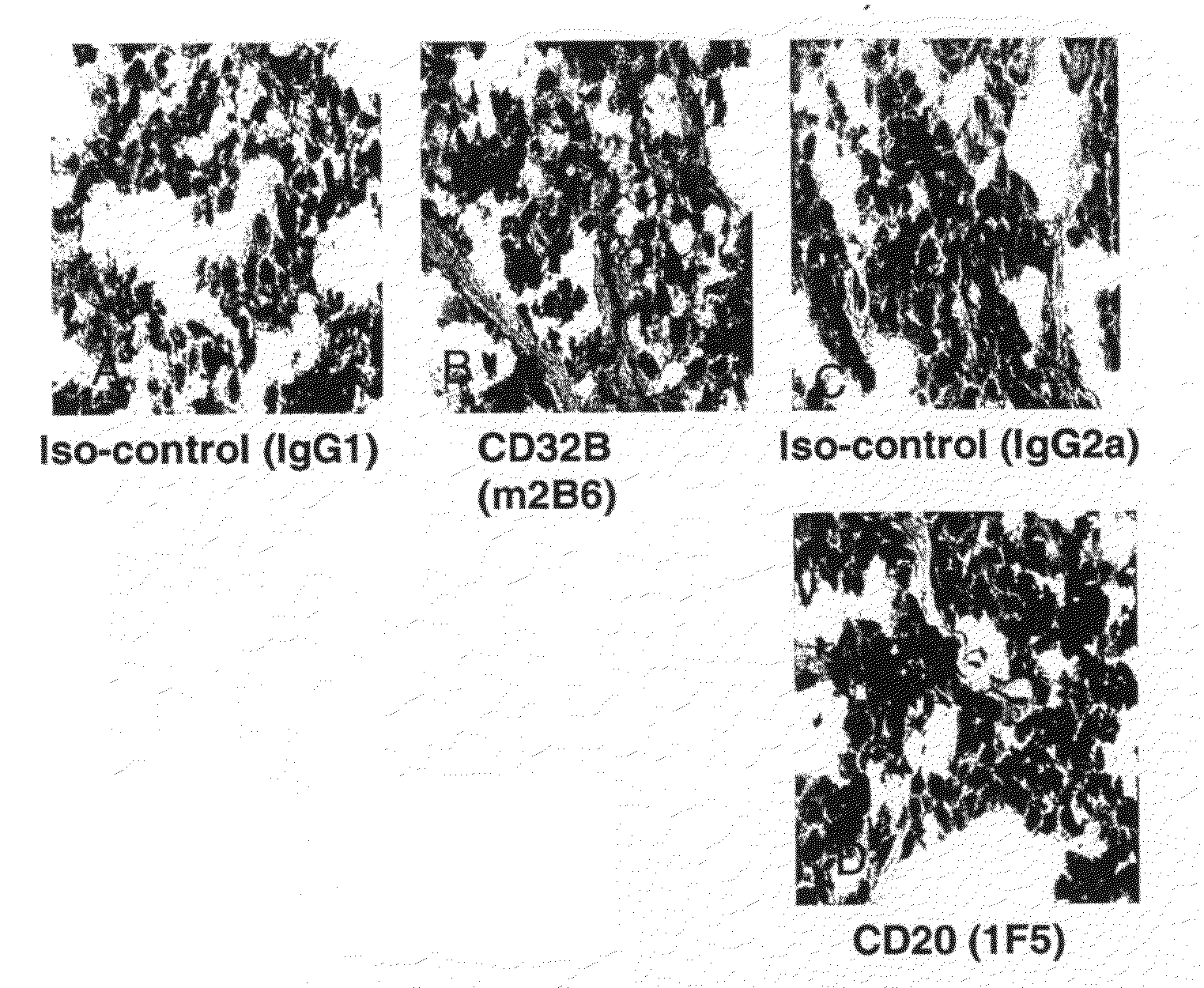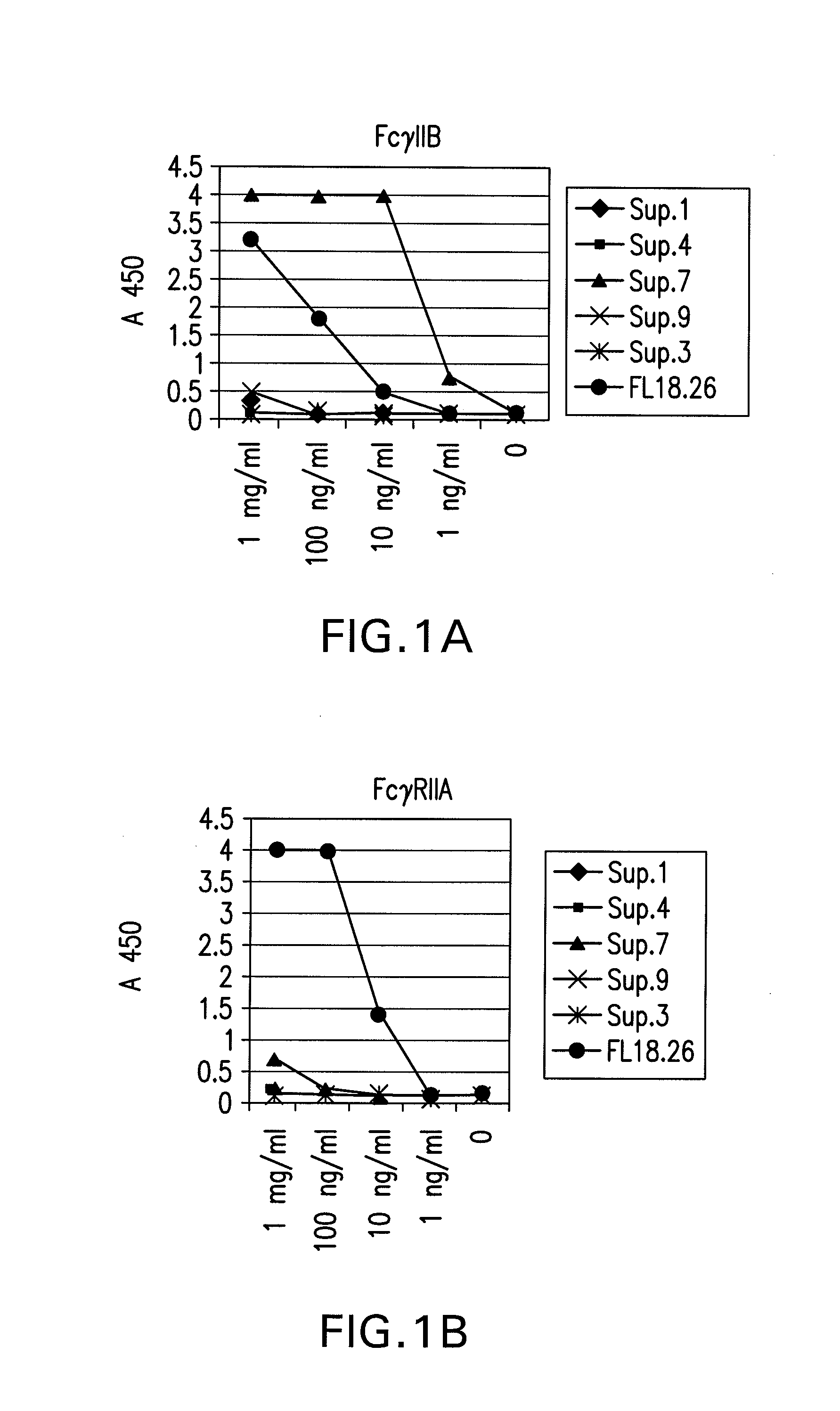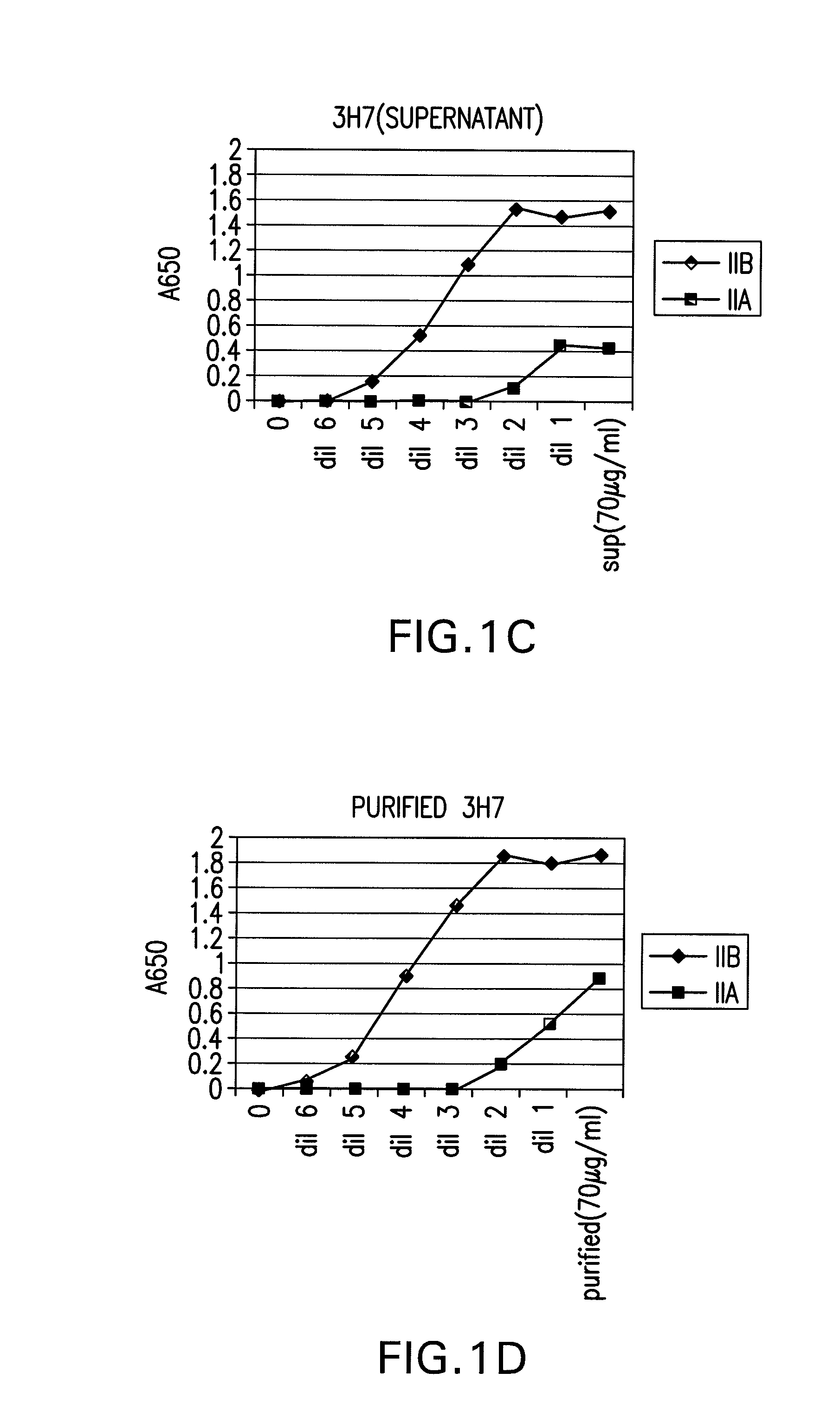FcGammaRIIB Specific Antibodies and Methods of Use Thereof
a technology of fcgammariib and specific antibodies, applied in the field of human fcriib, can solve the problems of increasing destruction, affecting the current treatment options, such as surgery, chemotherapy and radiation treatment, are often either ineffective or present serious side effects, and can pose significant drawbacks to patients, so as to enhance the effect of antibody-mediated effector function, potentiate the antibody's therapeutic activity, and enhance the effect of antibody-mediated
- Summary
- Abstract
- Description
- Claims
- Application Information
AI Technical Summary
Benefits of technology
Problems solved by technology
Method used
Image
Examples
example 1
Preparation of Monoclonal Antibodies
[0619]A mouse monoclonal antibody was produced from clones 3H7 or 2B6 with ATCC accession numbers PTA-4591 and PTA-4592, respectively. A mouse monoclonal antibody that specifically binds FcγRIIB with greater affinity than said monoclonal antibody binds FcγRIIA, was generated. Transgenic FcγRIIA mice (generated in Dr. Ravetch Laboratory, Rockefeller University) were immunized with FcγRIIB purified from supernatant of 293 cells that had been transfected with cDNA encoding the extracellular domain of the human FcγRIIB receptor, residues 1-180. Hybridoma cell lines from spleen cells of these mice were produced and screened for antibodies that specifically bind FcγRIIB with greater affinity than the antibodies bind FcγRIIA.
[0620]Antibody Screening and Characterization
[0621]Materials and Methods:
[0622]Supernatants from hybridoma cultures are screened for immunoreactivity against FcγRIIA or FcγRIIB using ELISA assays. In each case, the plate is coated wi...
example 2
Characterization of the Monoclonal Antibody Produced from the 3H7 Clone
[0635]The direct binding of different batches of hybridoma cultures to FcγRIIA and FcγRIIB were compared using an ELISA assay (FIG. 1A). Supernatants numbered 1, 4, 7, 9, and 3 were tested for specific binding and their binding was compared to a commercially available antibody, FL18.26. As shown in FIG. 1A, supernatant from clone 7 has the maximal binding to FcγRIIB, which is about four times higher under saturating conditions than the binding of the commercially available antibody to FcγRIIB. However, the supernatant from clone 7 has hardly any affinity for FcγRIIA, as seen in FIG. 1B, whereas the commercially available antibody binds FcγRIIA at least 4 times better.
[0636]Direct binding of the antibody produced from the 3H7 clone to FcγRIIA and FcγRIIB. The binding of crude 3H7 supernatant (FIG. 1C) and purified 3H7 supernatant was measured (FIG. 1D). In each case, the supernatant was supplied at a concentration...
example 3
Characterization of the Monoclonal Antibody Produced from the 2B6 Clone
[0640]Comparison of direct binding of the antibody produced from clone 2B6 compared to other three commercially available monoclonal antibodies against FcγRII. The binding of the antibody produced from clone 2B6 to FcγRIIA and FcγRIIB is compared to that of three other commercially available antibodies, AT10, FL18.26, and IV.3, against FcγRII in an ELISA assay. As seen in FIG. 5A, the antibody produced from clone 2B6 binds FcγRIIB up to 4.5 times better than the other commercially available antibodies. Additionally, the antibody produced from clone 2B6 has minimal affinity for FcγRIIA, whereas the other three commercially available antibodies bind FcγRIIA in a saturatable manner and twice as much as the antibody from clone 2B6 binds FcγRIIA (FIG. 5B).
[0641]Blocking of aggregated human IgG to FcγRIIB by the antibody produced from clone 2B6. The ability of the antibody produced from clone 2B6 to block binding of th...
PUM
| Property | Measurement | Unit |
|---|---|---|
| Fraction | aaaaa | aaaaa |
Abstract
Description
Claims
Application Information
 Login to View More
Login to View More - R&D
- Intellectual Property
- Life Sciences
- Materials
- Tech Scout
- Unparalleled Data Quality
- Higher Quality Content
- 60% Fewer Hallucinations
Browse by: Latest US Patents, China's latest patents, Technical Efficacy Thesaurus, Application Domain, Technology Topic, Popular Technical Reports.
© 2025 PatSnap. All rights reserved.Legal|Privacy policy|Modern Slavery Act Transparency Statement|Sitemap|About US| Contact US: help@patsnap.com



